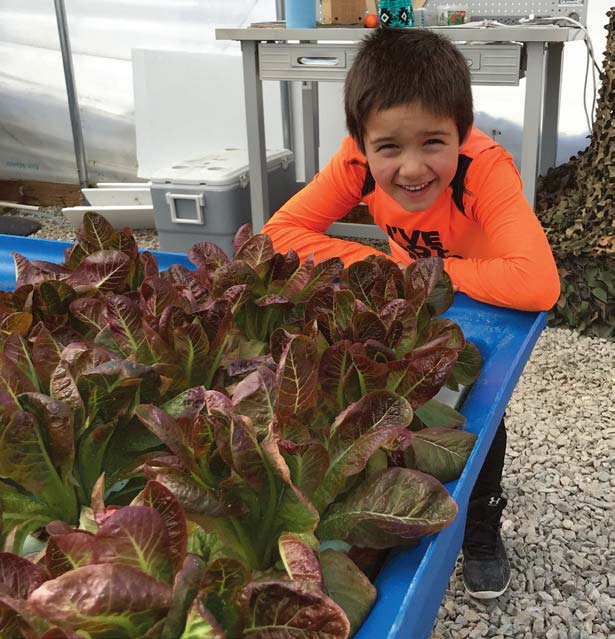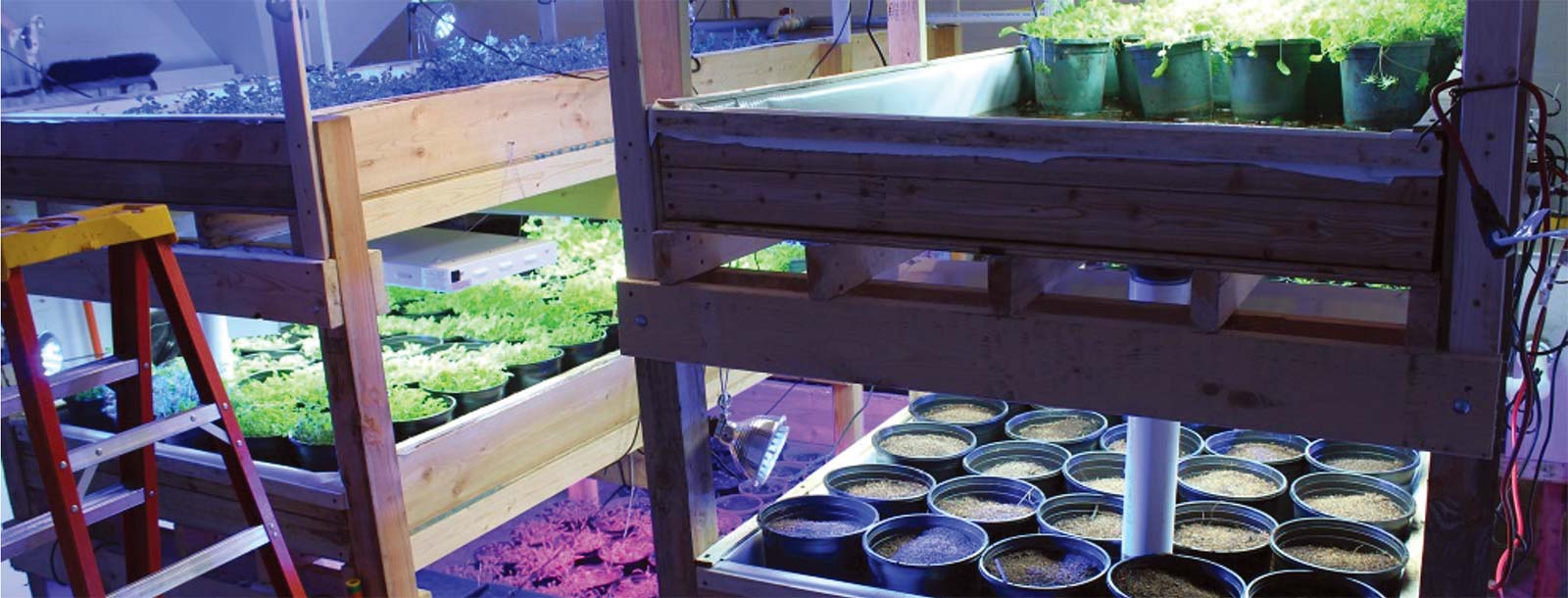One Way to Get Around Winter - Aquaponic Efforts at Oneida Nation and The Farmory
It’s no joke that here in Wisconsin we see some harsh winters. The climate calls for below zero temperatures, blizzards; and even snowfall and freezing temperatures into April. Because of that, some farmers in Green Bay have taken to a different style of farming: Aquaponics.
Not a new idea, aquaponics is a style of farming that has been around for many years. With our useable farmland dwindling, in combination with Wisconsin’s harsh winters, more people are looking towards aquaponics for an extended growing season.
Aquaponics is the cultivation of fish and plants together in a constructed, recirculating ecosystem utilizing natural bacterial cycles to convert fish waste to plant nutrients. It is an environmentally friendly, natural food-growing method that harnesses the best attributes of aquaculture and hydroponics without the need to discard any water or filtrate or add chemical fertilizers.
The Oneida Nation of Wisconsin has developed its own aquaponics system after receiving a Farm to School grant from the United States Department of Agriculture in 2016. The Nation’s aquaponics system provides fresh greens for the school’s salad bars and fresh greens for the food pantry and elderly community as well. The aquaponics system not only provides farm-to-school in an edible sense, but also brings the farmto- school through educational programs.
Currently, the Oneida Nation is working on developing a curriculum through aquaponics for both the local high school and elementary school. Additionally, the Nation is working in partnership with Northeast Wisconsin Technical College for course credit. The system serves as a great learning opportunity to anyone interested.
The Oneida Aquaponics system is housed right next to the Oneida Veterans building, providing a great opportunity for the area’s local veterans. Not only are the veterans able to have access to healthy food options, but many have helped volunteer at the operation.
 Gage VanDen Heuvel is one of the volunteers who helps harvest the bounty of lettuce the Oneida Nation will use in its schools, for the veterans and other programs. Contributed photo
Gage VanDen Heuvel is one of the volunteers who helps harvest the bounty of lettuce the Oneida Nation will use in its schools, for the veterans and other programs. Contributed photo
“[Aquaponics] is important because it presents a different way to do agriculture. Wisconsin is a strong agriculturally-minded area; aquaponics presents a new perception on how to grow our food,” says Richard Elm-Hill, operations analyst for the Internal Services Division at Oneida Nation.
The Oneida Aquaponics system is a four-tank Nelson and Pade system (Nelson and Pade is a Wisconsin aquaponics company) that holds 70-90 tilapia in each tank. In full production, the system can produce more than 100 heads of lettuce a week. Additionally, four new vertical towers have been added to the greenhouse to grow strawberries – a fruit that Richard says is medicinal in the Oneida culture. “We teach them how to use the system as well as things like the Oneida word for fish, or water,” explains Elm-Hill.
Another up-and-coming aquaponics system in the Northeast Wisconsin area is The Farmory. Housed in what used to be the old Green Bay Armory, The Farmory is a nonprofit, soil-based aquaponics system that works to create sustainable, indoor year-round farming.
The Farmory is developing an educational urban farm that aims to strengthen the community and encourage self-sufficiency through agricultural and entrepreneurial education and employment-skill development.
Once remodeled, The Farmory will be a 20,000-square-foot, two-story center. The first floor will house The Hatchery that will be a breeding center for the state’s first and only bio-secure yellow perch hatchery.
In a unique partnership with biologists from the University of Wisconsin- Green Bay’s College of Science, Engineering and Technology, The Farmory plans to open Wisconsin’s first research-based, full-scale yearround commercial fish hatchery this winter. The Farmory will use some of the fish in its aquaponics systems, while the rest will be sold. Upwards of 500,000 fingerlings are expected to be produced and sold to fish farmers in the region each year. Fresh, locally-grown perch will once again be available to area restaurants and provide opportunities for local commercial fish entrepreneurs.
“The planet is hungry and we need to find a new way to feed it,” says Claire Thompson, program director at The Farmory.
Once it is fully operational, The Farmory hopes the aquaponics operation to be producing rooughly 173,000 pounds of mixed salad greens a year and 42,000 fully- grown perch.
“For a variety of reasons, the Lake Michigan yellow perch population has plummeted and commercial fishing of this and other species have deteriorated,” said Thompson. “We believe this partnership with UW-Green Bay will spur the aquaculture industry, provide a collaborative venue for entrepreneurs looking to test new technologies in indoor agriculture, and bolster the local food supply chain.”
On another front, The Farmory is working towards helping to grow job skills and entrepreneurial opportunities by offering a variety of classes, training programs and even partnering with local schools like West De Pere High School.
The new system at West De Pere High School is The Farmory’s second soil-based aquaponic system and will be allowing students to learn about aquaponics and how to care for the fish, take care of the plants, harvest the greens and teach students how to create a sustainable urban farming system. The plants that are harvested through this system will be used in the school’s cafeteria. Both the Oneida aquaponic system and The Farmory would not be able to create, teach and provide food without the help of volunteers. Both urban farms are volunteerrun and enjoy the opportunity to give back and involve their community.
“It’s a really good way to bring people into the community … we are open to anyone,” says Richard.
“All walks of life find gardening therapeutic,” states Thompson. “It seems like such a new idea, but it’s not. We’re just applying it.”





